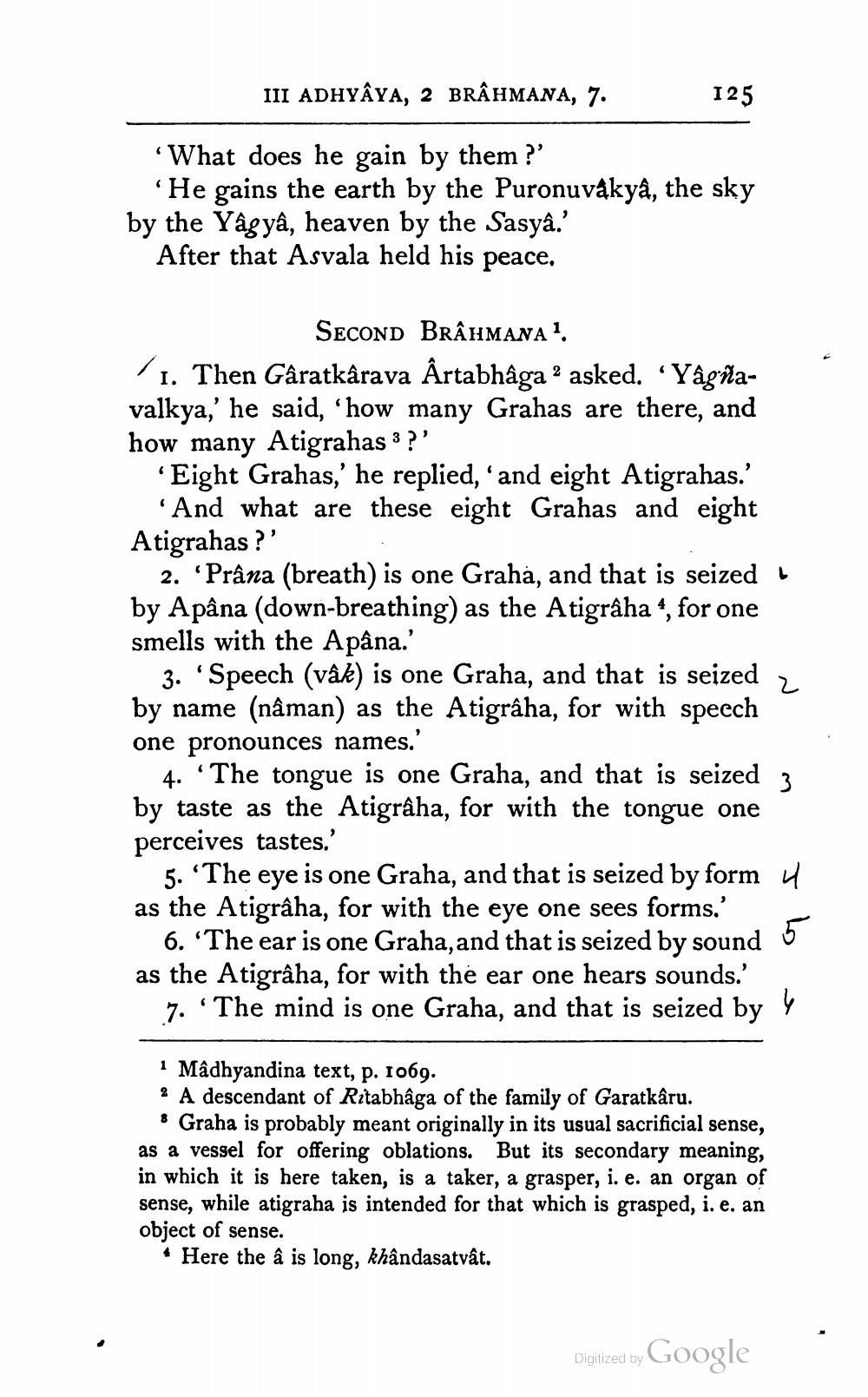________________
III ADHYÂYA, 2 BRÂHMANA, 7.
125
'What does he gain by them ?'
'He gains the earth by the Puronuvákyâ, the sky by the Yagyâ, heaven by the Sasya.'
After that Asvala held his peace,
Second BRÂHMANA? 1. Then Gâratkârava Artabhâga 2 asked. “Yâgñavalkya,' he said, 'how many Grahas are there, and how many Atigrahas 3 ?'
Eight Grahas,' he replied, and eight Atigrahas.'
And what are these eight Grahas and eight A tigrahas ?'
2. "Prana (breath) is one Graha, and that is seized by Apâna (down-breathing) as the Atigrâha 4, for one smells with the Apâna.'
3. 'Speech (vâk) is one Graha, and that is seized z by name (nâman) as the Atigrâha, for with speech one pronounces names.'
4. “The tongue is one Graha, and that is seized 3 by taste as the Atigrâha, for with the tongue one perceives tastes.'
5. 'The eye is one Graha, and that is seized by formu as the Atigrâha, for with the eye one sees forms.'
6. 'The ear is one Graha, and that is seized by sounds as the Atigrâha, for with the ear one hears sounds.
7. "The mind is one Graha, and that is seized by y
1 Mâdhyandina text, p. 1069. 2 A descendant of Ritabhậga of the family of Garatkâru.
s Graha is probably meant originally in its usual sacrificial sense, as a vessel for offering oblations. But its secondary meaning, in which it is here taken, is a taker, a grasper, i. e. an organ of sense, while atigraha is intended for that which is grasped, i. e. an object of sense.
* Here the â is long, khandasatvât.
Digitized by Google




